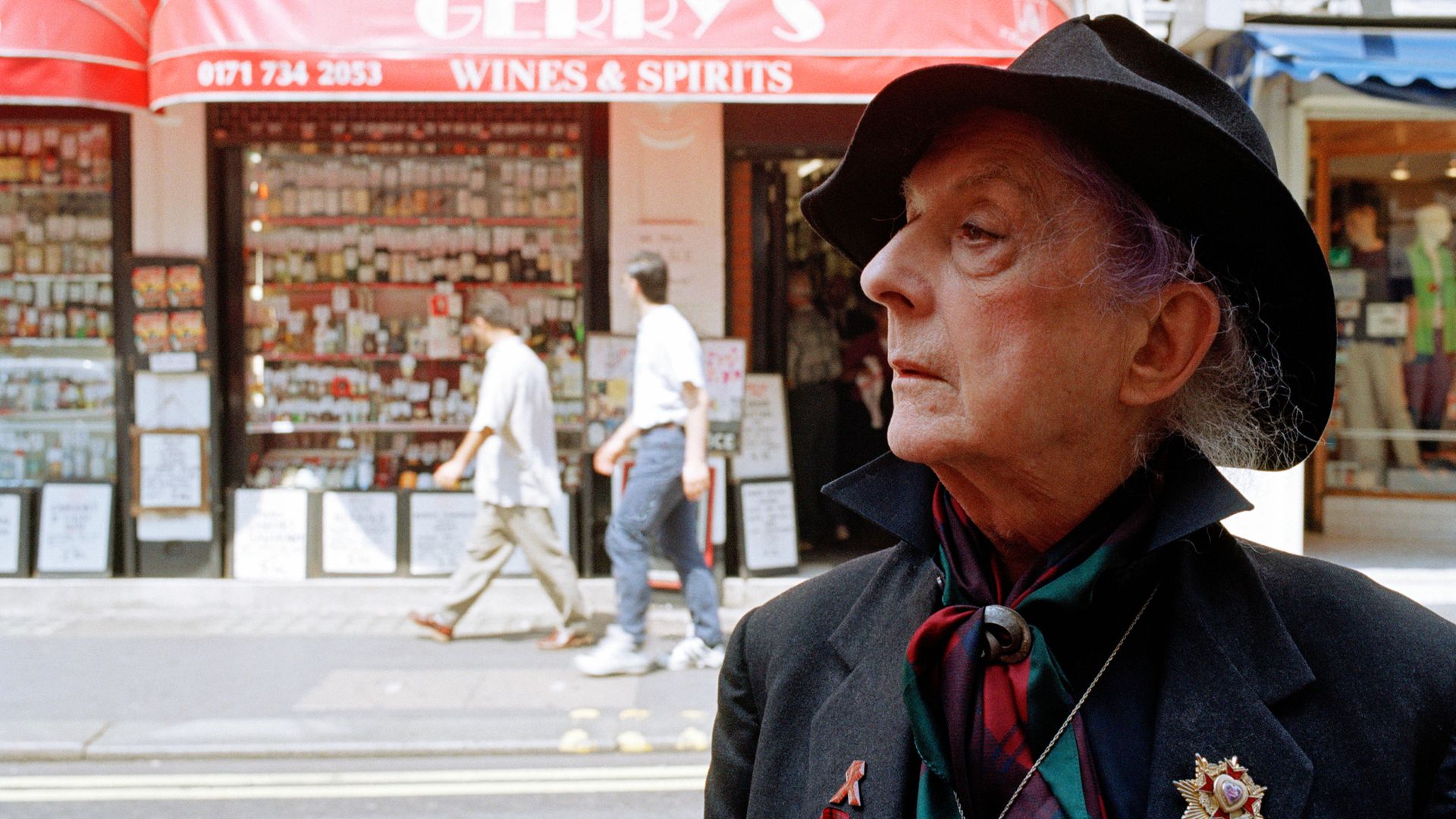
TIM WALKER looks back on a meeting with Quentin Crisp, which left him unimpressed.
Quentin Crisp was fond of saying that if you ever wanted to shock your parents, you should tell them you’d met him. I’m not sure he was all that shocking by the time I caught up with him 1985 when he was about to do a one-man show at the Theatre Royal in Brighton.
The Naked Civil Servant, the television drama based on his early life, had come out a decade before and that had turned him into something of a national treasure. He preferred to call himself “one of the country’s great stately homos,” even if, by that point, he was actually living in New York.
Sure, his hair was dyed blue, he wore rouge and mascara and he carried himself and spoke like Lady Bracknell, but he seemed a cosy and unthreatening adornment, adding nothing but gaiety to nations. And before you ask, yes, he was without question an actor.
He told me his whole life had really been an act, and, even as a boy, his mother could see that he’d make a perfect fairy in a school production of A Midsummer Night’s Dream.
She permitted him to wear her green tulle and garlands for the occasion. In his later years, he built up a respectable body of work on stage and on film, sometimes playing himself, most notably in the Oscar-winning Philadelphia, but also proper roles such as Dr Zalhus in the trendy Sting horror film The Bride, in an inspired piece of casting, and Queen Elizabeth I in Orlando alongside Tilda Swinton and Billy Zane.
We’d met for tea at the Grand Hotel in Brighton and he was dressed in a mauve trouser suit with a matching fedora. I suppose when somebody looks very striking, there is always an expectation that they will say striking things.
I found Crisp rather disappointing in that regard. He spoke for a very long time about the weather and how it was making a bout of lumbago worse. I’d also got it into my head that he was a brave warrior in the fight for LGBT rights, and, while he was undoubtedly courageous in his early life, he’d latterly started to bat for the other side.
“I see gay people as observers, by which I mean they don’t really participate in life in the way that others do. I mean they don’t have wives and children and responsibilities and so it’s not quite the same for them.”
Taken aback, I asked him if he even backed the gay rights movement, and he wondered if such “a diverse and incongruous group of people” could really be called a movement at all.
He said he wasn’t clear about what it was “they” wanted to achieve. I was writing the piece for the Evening Argus in Brighton, which, of course, had a big homosexual community, and it was difficult to know how to go about writing this piece.
It seemed to me there was more than enough homophobia at the time – this was at the height of the AIDS epidemic – without one of the country’s best-known homosexuals adding to it. It was rather like interviewing a religious leader who admitted to not having any interest in religion.
In later interviews, Crisp went on to say still more offensive things about homosexuality which right-wing newspapers lapped up. He described homosexuality as “a terrible disease” and said “the world would be better without homosexuals”. He told the Times that he would advise parents to abort a foetus if it could be shown to be genetically predetermined to be gay.
The gay rights campaigner Peter Tatchell speculated that Crisp was outraged that he was no longer the centre of attention. He speculated that he disliked being overtaken and over-shadowed by other gays.
As Tatchell memorably observed, they’d “queered his pitch”. Still, unlike Larry Grayson and John Inman, Crisp never really fell out of fashion. This may well be precisely because he accorded with a certain kind of outdated notion of what a homosexual should be, which is to say apologetic.
For myself, I found Crisp charmless, tedious and ultimately mystifying. I think he loved playing to the crowd, but hadn’t really worked out what to say to it or at least to come up with a narrative that was consistent.
I might add that when I got back to the office, a colleague mentioned he’d spotted us at the Grand. “Who on earth was that you were with?” he asked. I’d mischievously replied: “Oh, just my dad.”










